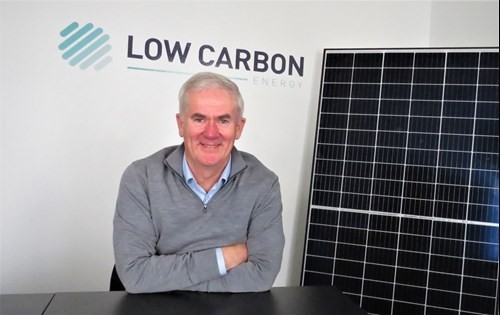ESG (Environmental, Social and Governance) has become vital criteria that are more important for businesses than ever in today’s growing climate crisis.
The climate crisis has been a growing concern across the globe for several years now, and it’s led to a variety of changes to state legislation on green practices for businesses.
The UK has become the first major country to make a legally binding commitment to achieving Net Zero by 2050, so now many businesses are following strict new guidelines to ensure that their companies achieve the legally mandated Net Zero target, and ESG is playing a key part in that.
As experts with commercial solar panels and sustainability here at Low Carbon Energy, we’ve collected everything you need to know about ESG.
What is ESG?
ESG stands for Environmental, Social and Governance. Basically, it’s a list of key criteria used by investors to evaluate companies that they might want to invest in. In other words, it assesses how your business performs from an environmental perspective, how it approaches social issues, and how your business is governed from the top down.
Crucially, ESG is used by investors to identify companies that could potentially present a higher financial risk moving forward. Now, there’s technically no standardised way of measuring ESG. Each differs in their criteria ever so slightly but there are a few general similarities it’s worth noting.
The ESG guidelines are split into three distinct categories:
Environmental – this assesses your company’s energy use, waste, pollution, natural resource conservation, and treatment of animals. It’s also used to evaluate any environmental risks a company might face and how they manage them.
Social – the social criteria looks at your company’s business relationships. Does your business donate to the local community, or encourage employees to perform volunteer work? Does your company maintain working relations with other businesses that hold similar values to it? Do your company’s working conditions hold health and safety in high regard? And so on.
Governance – investors are very keen to know that a company uses accurate and transparent accounting methods. This is mainly to give them assurances that the company isn’t participating in any illegal activities. This criteria is also there to make sure that your business avoids any potential conflicts of interest between its board members, and that you’re not using any political contributions to obtain unduly favourable treatment.
ESG-based investments soared in 2020, and they’ve not slowed down since. That’s largely because today’s climate crisis is more pressing than ever – investors, business owners and consumers alike are all increasingly conscious of it, and changing their behaviour accordingly.
This is because sustainability is particularly important to investors, who have to think even further ahead than consumers. In a nutshell – today’s investors want to put their money into companies that they think will make them a profit over a prolonged period of time, which marks a departure from the previously ‘safe’ investments in fossil fuels in decades gone by.
The United Nations is looking to move away from fossil fuel consumption in the years to come, and what they say has massive influence over how people react to the climate crisis. According to a report from the UN Intergovernmental Panel on Climate Change, human influences have played a vital role in contributing to the climate crisis, and some forms of climate disruption are now locked in for centuries. UN Secretary-General Antonio Guterres stated in response that this report must ‘sound a death knell for coal and fossil fuels before they destroy our planet’.
With mounting pressure from UN and the UK government on businesses to move away from fossil fuels, many investors have been deterred from putting their money into companies that don’t adhere to the ESG criteria. That makes them worth prioritising to make sure your business gets the maximum attention from investors, and maximum success in turn!
By following ESG criteria, you secure your company’s future as an investable prospect. On the other hand, companies that run exclusively on fossil fuels at the minute will suffer from this shift in agenda so it’s important to try and make changes as soon as possible.
In years gone by, responsible investments had a reputation for requiring some kind of sacrifice on the investors part from a profit perspective. Greener investments weren’t as common place as they are now, as environmental issues weren’t as highly regarded as they are today, so you were unlikely to make a profit on a green company.
But things have changed. Investors now believe that environmental, social, and governance criteria have a practical purpose. By following ESG criteria they’re able to avoid companies whose practices are deemed as a risk factor which could lead to a drop in share prices in the future.
ESG criteria will play an increasingly vital role in determining whether your company is treated as an attractive prospect by potential investors in the coming years.























